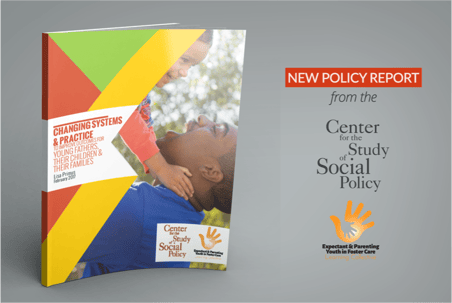How to Effectively Serve Dads Involved in Child Welfare
2 min read
Date Published: 03/07/2017
Last Updated: 11/05/2020
National Fatherhood Initiative Blog / Latest Articles
2 min read

Increasing the involvement of young fathers in the lives of their children is particularly challenging when fathers are involved in the child welfare system.
To help meet this challenge, the Center for the Study of Social Policy (CSSP) has just released an excellent policy report (and accompanying video) that includes recommendations to help child welfare agencies and organizations that serve these young fathers (under age 26) and their families. If you work with young fathers involved in the child welfare system, you must read this report. The recommendations fall into the following categories:
The good news is National Fatherhood Initiative® (NFI) has resources that can help agencies and organizations implement many of these recommendations. (The content in many of these resources is informed by NFI's participation as part of a three organization team, along with the American Humane Association and the American Bar Association, in running the federal government's National Quality Improvement Center on Non-Resident Fathers and the Child Welfare System, a five-year project that tested and identified innovative models for increasing the engagement of fathers by child welfare agencies and organizations.) Here are some of the most important of those resources that fall into the recommendation categories:
Have you assessed the fit of your organization's culture to effectively serving dads?
How father-focused are your programs and services for young dads involved in the child welfare system?
Check out our How to Manage Money Brochure for 7 tips that will help dads better manage their own—or their family's—money.
Date Published: 03/07/2017
Last Updated: 11/05/2020
Download this free guide for a proven 7-step roadmap—from making the case and securing funding for your program, to launching and measuring real results!


Train Your Staff
Fatherhood Programs
Fatherhood Data
© 2026 National Fatherhood Initiative®. All rights reserved.